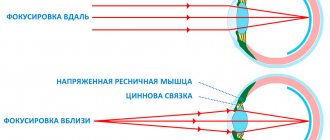Weakness and headache are very common symptoms that can occur in many conditions and diseases. Sometimes they only say that it is necessary to change their lifestyle, for example, adjust their diet or get more rest. But in some cases, these manifestations may indicate serious diseases, including rare ones.
For example, fatigue along with progressive muscle weakness are symptoms of Pompe disease. This is a rare hereditary disease that can occur at any age. In Pompe disease, due to a genetic mutation, the level of the enzyme alpha-glucosidase decreases, which leads to the accumulation of glycogen in tissues. Cardiac and skeletal muscle damage is most severe in the infantile form and skeletal muscle is predominant in Late-onset Pompe disease1.
The disease is manifested by a constantly progressive decrease in muscle tone. Muscle weakness may be accompanied by general fatigue, exercise intolerance, headache, cardiac dysfunction, shortness of breath, including when lying on your back. Due to a decrease in muscle tone, posture is disrupted - lumbar lordosis develops2.
However, the likelihood of developing Pompe disease is very low - the disease is extremely rare. In the vast majority of cases, weakness and headache are associated with more common diseases and conditions. Let's look at the most common reasons.
Causes of drowsiness, headache, nausea and weakness
Drowsiness, headache, nausea are unpleasant symptoms that can bother the patient for a long time. They occur for various reasons, from simple fatigue or poisoning to the initial stages of brain diseases. It is impossible to carry out an accurate diagnosis on your own. The patient’s main task is to make an appointment with a doctor and answer questions about how and when the pain appeared, in what area it is located and what symptoms it is accompanied by.
Endocrine system diseases
One of the reasons for constant weakness and drowsiness, aching headaches is diseases of the endocrine organs. They are represented by organs that produce hormones into the blood and thereby participate in most biochemical processes in the body. Hormonal imbalance leads to poor health, headaches and other disorders.
- Diabetes mellitus is a disease characterized by insufficient levels of insulin produced by the pancreas in the blood. This leads to increased glucose concentrations, constant weakness, destruction of vascular walls and other long-term complications. The first symptoms of the disease include a constant feeling of thirst, weakness, dry mouth, and nausea. To confirm the diagnosis, blood glucose levels are measured.
- Hypothyroidism is a deficiency of thyroid hormones of any origin. In its mild form, it does not manifest any symptoms, but can also cause weakness, apathy, weight loss or gain, deepening of the voice, and the appearance of a goiter. Hypothyroidism occurs as a result of diseases or injuries of the thyroid gland, iodine deficiency in the diet, and also as a result of diseases of the pituitary gland.
In women, drowsiness, headache, weakness and nausea may occur in the first trimester of pregnancy due to toxicosis. Deterioration in well-being is provoked by the body’s adaptation to changes and restructuring of the immune system. In this case, it is important to avoid dehydration and undergo regular examinations with a doctor. In the first trimester of pregnancy, manifestations of toxicosis are allowed, but in the later stages this condition is not considered normal and requires hospitalization.
Intoxication
Poisoning with food, medicine or alcohol, gaseous substances is a dangerous condition that requires urgent medical attention. These compounds cause acute intoxication, nausea and weakness, and a sharp deterioration in health. Similar symptoms develop when bitten by poisonous animals or insects. They can be mildly expressed if a small amount of toxins enters the body. However, in high concentrations, toxic substances can cause damage to the nervous system and other dangerous consequences.
There are several types of poisoning, depending on the type of toxic substance and how it enters the body.
- Food poisoning is the most common type. In everyday life, they can occur in any person and quickly go away on their own. However, some types of poisonous plants, expired and perishable foods cause a vivid picture. The first recommendations are a water diet, taking sorbents and gastric lavage if necessary.
- Poisoning from medications and alcohol can also occur due to negligence. Toxins spread quickly through the blood and can cause damage to brain tissue. The danger comes from drinking large doses of alcohol once or drinking low-quality alcohol, as well as regularly drinking drinks, even in small quantities.
- Poisoning with poisonous mushrooms is one of the most dangerous causes of weakness, nausea and headaches. If your health worsens after eating even edible mushrooms, especially those collected yourself, you should urgently consult a doctor. The poisons contained in mushrooms cause toxic damage to the brain and can lead to disruption of vital functions.
- Poisoning by toxic gases is possible even at home. A natural gas leak may cause drowsiness, weakness, nausea, and headache. If these symptoms appear, it is urgent to provide access to oxygen and leave the room.
The pattern of various types of intoxication depends on the type of toxic substance and the method of its entry into the body, as well as on the severity of the symptoms. If there is a significant deterioration in health, hospitalization and a course to relieve intoxication are required. The only exceptions are mild forms of food poisoning, for which taking sorbents is sufficient.
Inner ear diseases
Headache is one of the first signs of inner ear diseases. This organ is responsible not only for hearing, but also for balance, and has a complex structure. It is formed by a bony labyrinth, within which there is a membranous labyrinth. Various hearing and balance disorders, as well as headaches and nausea, can be associated with diseases of the structures of the inner ear or the vestibular nerve - it is involved in the innervation of this organ.
- Meniere's disease is a chronic disease in which the production of endolymph, the fluid contents of the inner ear, increases. The pressure inside the labyrinth increases, which provokes attacks of acute headaches. The disease manifests itself in attacks that can last from several hours to days.
- Chronic otitis media is a dangerous disease that can cause purulent complications and even hearing loss. The pain can be localized on one side or spread to the entire surface of the head. With the development of purulent inflammation, characteristic discharge from the ear canal is observed.
- Inflammation of the vestibular nerve (vestibular neuritis) – often manifested by dizziness, nausea, and headache. Its symptoms gradually disappear over several weeks, subject to timely treatment.
Headache, nausea, weakness and dizziness are symptoms for which additional examination of the inner ear is prescribed. It is important to determine the source of pain and distinguish diseases of the organ of hearing from various disorders of the central nervous system.
Diseases of the cardiovascular system
Heart and vascular diseases are common among patients of any age. They can be congenital or acquired, occur in acute or chronic forms. Their causes include various anomalies in the structure of the heart and blood vessels, as well as injuries, inflammatory processes, and metabolic disorders. At risk are overweight patients who lead a sedentary lifestyle, as well as smokers. Frequent consumption of alcohol and poor nutrition can cause deterioration of blood vessels.
- Atherosclerosis is a chronic disease in which the walls of blood vessels become dense and insufficiently elastic. Deposits of various compounds, including cholesterol, appear on their inner wall. They narrow the vascular lumen, and insufficient blood flows to the hands and feet, as well as to the brain cells. There is also a risk of a blood clot breaking off and completely blocking the vessel.
- Hypertension is a persistent increase in blood pressure. If in a healthy person this figure remains within 120/80 mm. rt. Art. or may increase slightly, then with hypertension it is significantly higher. The condition threatens rapid fatigue of the heart muscle and stretching of the muscle layer of blood vessels. Blood pressure must be adjusted with medications to prevent myocardial infarction.
- Hypotension is low blood pressure. The condition is manifested by weakness, fatigue, decreased concentration and frequent headaches. With a sharp decrease in pressure, fainting is possible. For hypotension, it is important to dose the physical activity regimen and follow a diet to increase blood pressure. This disease is dangerous due to insufficient blood supply to the brain, which can cause ischemic stroke.
Doctors at the Clinical Brain Institute recommend periodically measuring your blood pressure yourself. In your home medicine cabinet you should definitely have a tonometer and medications to increase and decrease blood pressure. They are not recommended to be taken without a prescription, but during an attack they can be extremely useful for normalizing well-being.
Other reasons
Drowsiness, weakness, nausea and headache are common symptoms that can occur in a healthy person. They indicate severe fatigue, anxiety and stress, and disappear after proper rest. However, this condition may correspond to various diseases and disorders that require medical attention:
- migraine is a primary headache in which attacks can last from several hours to several days;
- iron deficiency in the body is one of the causes of anemia (lack of oxygen) and disruption of the formation of hemoglobin;
- sudden weight loss, including during stress or following strict diets;
- regular use of certain groups of drugs (antipsychotics, hormonal and painkillers, drugs to correct uric acid levels may have side effects);
- brain tumors are a dangerous but rare cause of headaches, weakness and drowsiness.
Doctors recommend monitoring your health. Constant weakness, drowsiness, decreased concentration - this is not a normal state. At home, it is worth adjusting your diet and including a sufficient amount of important vitamins and microelements in your diet. Additional medications are prescribed only based on the results of the examination.
When should you see a doctor?
Sometimes headaches and fatigue require immediate medical attention. Alarm signals, when they appear, you should call an ambulance12,13:
- sudden severe headache;
- headache, fatigue in combination with limited ability to tilt the head forward, bringing the chin closer to the chest (stiff neck);
- confusion;
- visual impairment;
- sensory disturbances, such as numbness of the limbs;
- speech disorder.
In the absence of alarms, consultation with a doctor may be necessary routinely in cases where the cause of headaches and fatigue is unknown.
References
- Nikitin S. S. et al. Clinical recommendations for the provision of medical care to patients with Pompe disease // Neuromuscular diseases, 2021. Vol. 6. No. 1.
- Clinical recommendations. Pompe disease, 2021
- Morozova O. G. Migraine: modern ideas about classification, diagnosis, therapy and prevention (Part I) // Emergency Medicine, 2012. No. 4 (43).
- Stuklov N.I., Mitchenkova A.A. Anemia and iron deficiency. Global problems and solution algorithms // Therapy, 2021. T. 24. No. 6. P.147-155.
- Federal clinical guidelines for the treatment of iron deficiency anemia, 2015.
- Fibromyalgia. MSD Handbook (accessed 09/18/2019).
- Smirnov V.S. Modern means of prevention and treatment of influenza and ARVI // St. Petersburg: FARMIndex. – 2008.
- Kovrov G.V., Lebedev M.A., Palatov S.Yu. Depression in general practice //Russian Medical Journal, 2010. T. 8. No. 18. P. 504-8.
- Initial treatment of dehydration in acute malnutrition. World Health Organization. URL: https://www.who.int/elena/titles/bbc/dehydration_sam/ru/ (accessed September 19, 2019).
- Clinical pharmacology and pharmacotherapy: textbook. – 3rd ed., add. and processed / ed. V.G. Kukesa, A.K. Starodubtseva. – M.: GEOTAR-Media, 2012. – 832 p.
- Prilepskaya V.N., Mezhevitinova E.A. Premenstrual syndrome //Gynecology, 2005. T. 7. No. 4. P. 210-214.
- Semenov V.M., Zenkova S.K., Dmitrachenko T.I. Purulent meningitis: features of the clinical course, variant of differential diagnosis //Medical alphabet, 2011. T. 2. No. 11. P. 24-30.
- Parfenov V. A., Khasanova D. R. Ischemic stroke, 2012.
GZEA.PD.18.09.0435r
Diagnostic methods
At the Clinical Institute of the Brain you can undergo a full diagnosis, which will include examinations of any level. The first stage is a consultation with a therapist to identify complaints and prescribe further procedures. Next, an individual diagnostic scheme is selected, which may include the following methods:
- blood tests (general and biochemical) to determine inflammatory processes in the body, disruption of the functioning of individual organs and systems, measurement of hemoglobin levels;
- Ultrasound of internal organs, including the heart;
- electrocardiography – diagnosis of heart rhythm, one of the main ways to determine heart defects;
- MRI, CT scan of the brain - is prescribed for suspected neoplasms, the presence of areas of ischemia and other pathologies.
It is important to understand that competent and timely diagnosis is the key to successful treatment. The use of modern equipment, which is located at the Clinical Institute of the Brain, greatly simplifies the task and allows you to quickly make the correct diagnosis.
Why do I always have a headache and want to sleep?
The reasons for the development of an unpleasant condition can be different - from a banal lack of sleep to the presence of a tumor in the brain. In any case, a person needs professional help. You shouldn’t hope that everything will go away when you get a good night’s sleep. Delay in identifying the provoking factor can lead to the development of an emergency condition and the problem becoming chronic. At the initial stage, drowsiness in combination with cephalgia causes a feeling of anxiety and worry. Over time, this develops into powerlessness, leading to psychosis, neuroses, and depression. As a result, even the physiological origin of symptoms is fraught with serious consequences.
If a person constantly feels sleepy, despite systematic, proper rest, this in itself cannot be a variant of the norm. Often the condition is triggered by the development of inflammatory processes and the presence of infection in the body. The headache that accompanies it does not arise due to general exhaustion of the body, but becomes a sign of intoxication. The temperature may be within normal limits, which complicates the diagnosis. A routine blood test will be sufficient to reveal the pathological nature of the clinical picture.
Treatment methods
The treatment regimen is selected individually. Most patients are prescribed a course of medications to take at home. It is recommended to undergo repeated examinations periodically to monitor the dynamics of the disease. The course may include the following stages:
- drugs to increase or decrease blood pressure;
- a special diet for atherosclerosis, heart and vascular diseases, which excludes fatty foods, fried foods, salt and spices in large quantities;
- migraine pain relievers;
- antibiotics – prescribed for inflammation of the inner ear, for the treatment and prevention of purulent complications;
- A course of vitamins and microelements is selected based on the results of a blood test.
The Clinical Brain Institute offers an individual approach to each patient. Here you can undergo comprehensive diagnostics, receive recommendations from specialists with many years of experience, and also stay for treatment in a hospital setting.
Clinical Brain Institute Rating: 4/5 — 5 votes
Share article on social networks










